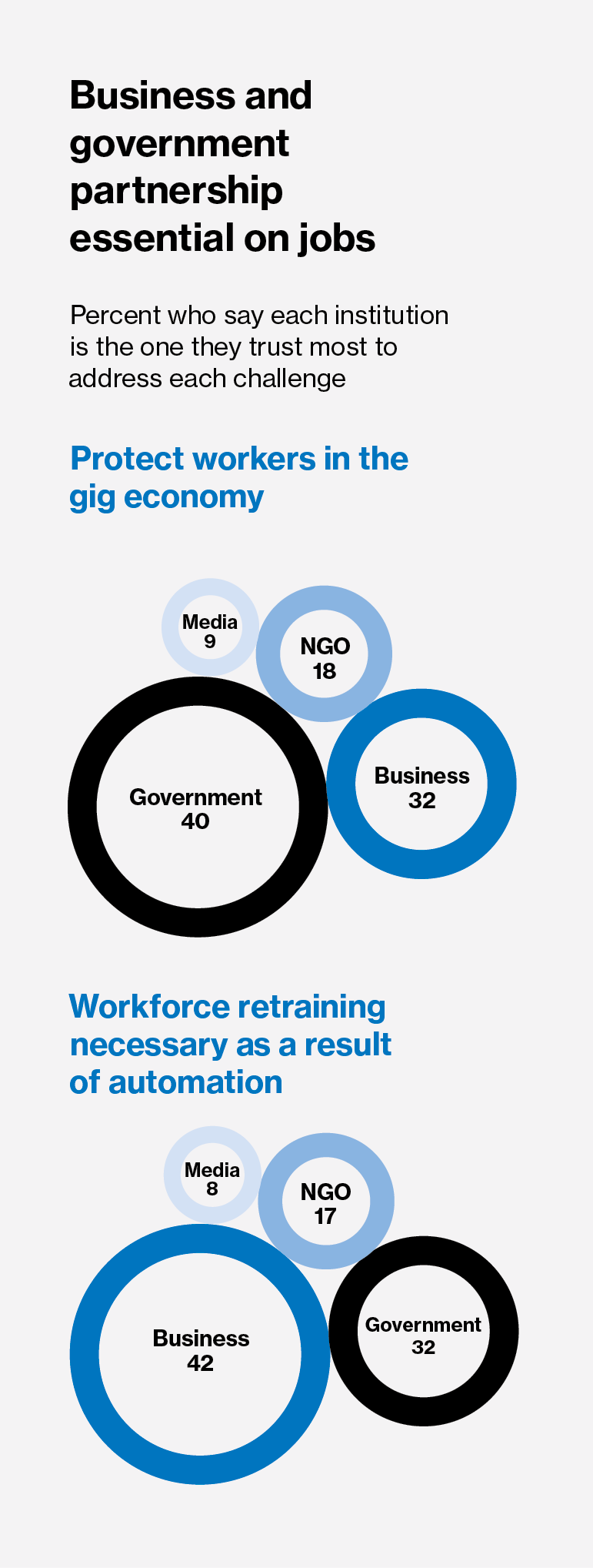The outlook for trust in government in 2020 is alarmingly bleak. Less than half of the respondents to the 2020 ľęņ÷ ”∆Ķ Trust Barometer trust government to do what is right. Fifty-seven percent say government serves ‚Äúthe interests of only a few.‚ÄĚ Government leaders are among the least trusted people. And on the two central drivers of people‚Äôs trust‚ÄĒcompetence and ethics‚ÄĒgovernment lags far behind the other institutions.
But a closer look behind the numbers reveals several important insights for government and perhaps even a glimmer of hope for the future. While the gaps are significant, the opportunities are huge. The way forward is for government to revitalize its role as an essential partner to business, act and communicate with more transparency and focus on how it can improve people’s lives in tangible ways at the local level.
Government is trusted as a leader in areas that it is typically expected to manage: transportation, immigration, social services and protecting people from harmful products. But critically, that trust also extends to issues that have the most direct impact on everyday life, such as inclusion and reducing income inequality. Even in sustainability, where business is generally seen as leading innovation, Trust Barometer respondents trust government the most‚ÄĒmore than twice as much as business.
Given government’s trust edge on several of the most pressing societal challenges, business should want to collaborate with government on solving them. Our study shows that people trust both institutions the most to solve the issues of workforce retraining and protecting workers in the gig economy. By making these issues an immediate focus in collaboration with business, government can overcome the perception that it serves the interests of only a few.
Regulation also should be viewed as a good opportunity for partnership. Sixty-one percent of people do not believe that government understands emerging technologies enough to regulate them effectively. However, the tech industry should remember that the best government regulation is created in tandem with industry. In fact, established companies tend to welcome regulation and provide input on the process because they understand government’s role in protecting them, their customers and their business.
Restoring trust in government can also begin at the local level. In 18 of 24 markets, local government is more trusted than federal government; globally, 69 percent of respondents trust ‚Äúpeople in my local community.‚ÄĚ These findings may reflect people‚Äôs awareness that their cities and communities are innovating to address the issues that impact their everyday lives, such as the effects of climate change.
Finally, we know from experience that without transparency and good communication, trust is much harder earned. Unless government recognizes the importance of these and practices both, people will always assume the worst.
I am a firm believer in the promise of government. My parents were proud civil servants, I served in government, and today my daughter is doing the same. Globally, government must take the real opportunity before it to restore trust now if it expects to attract the best and brightest problem-solvers of the future.
Lisa Osborne Ross is the President of ľęņ÷ ”∆Ķ's Washington, D.C. office.





